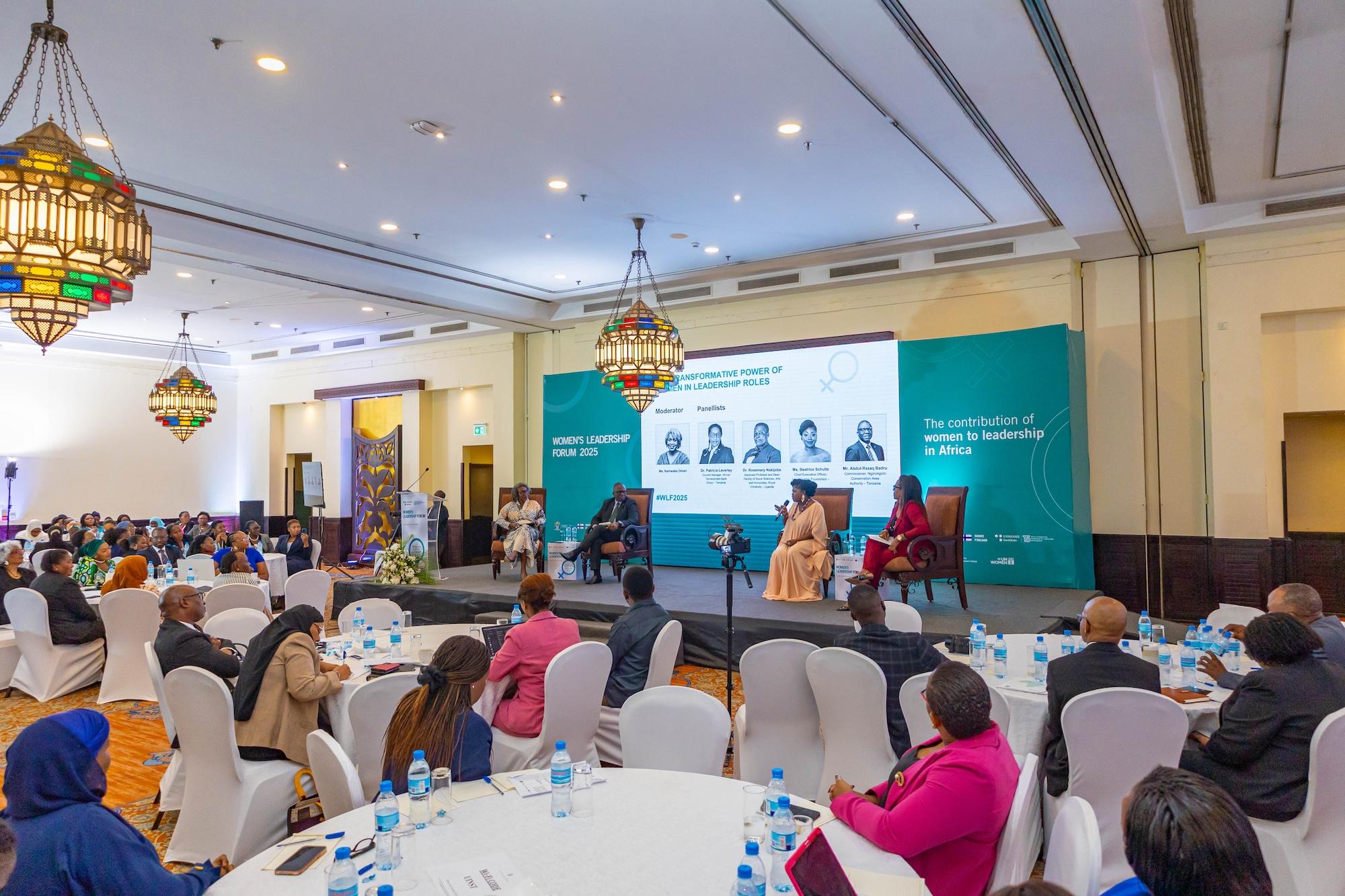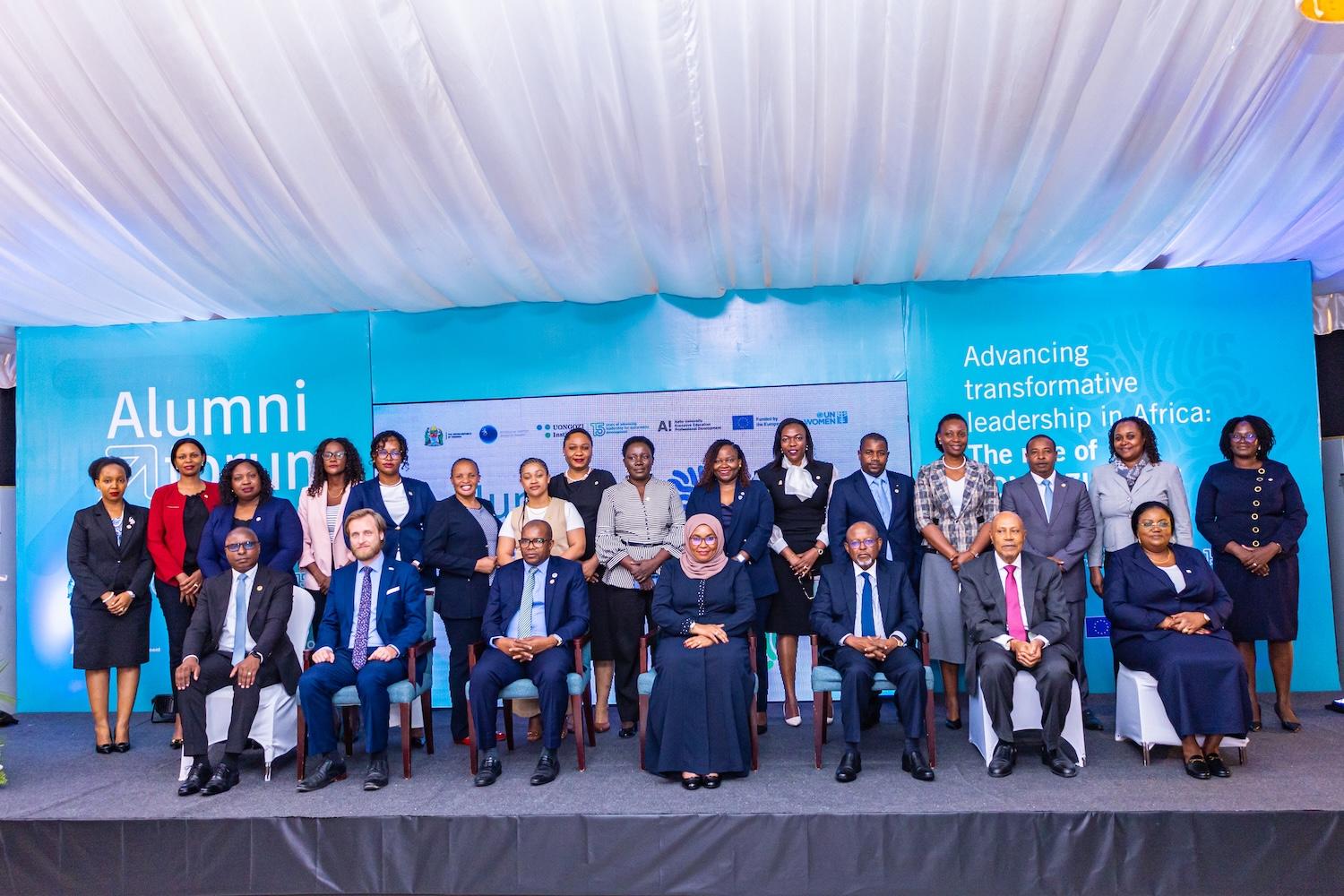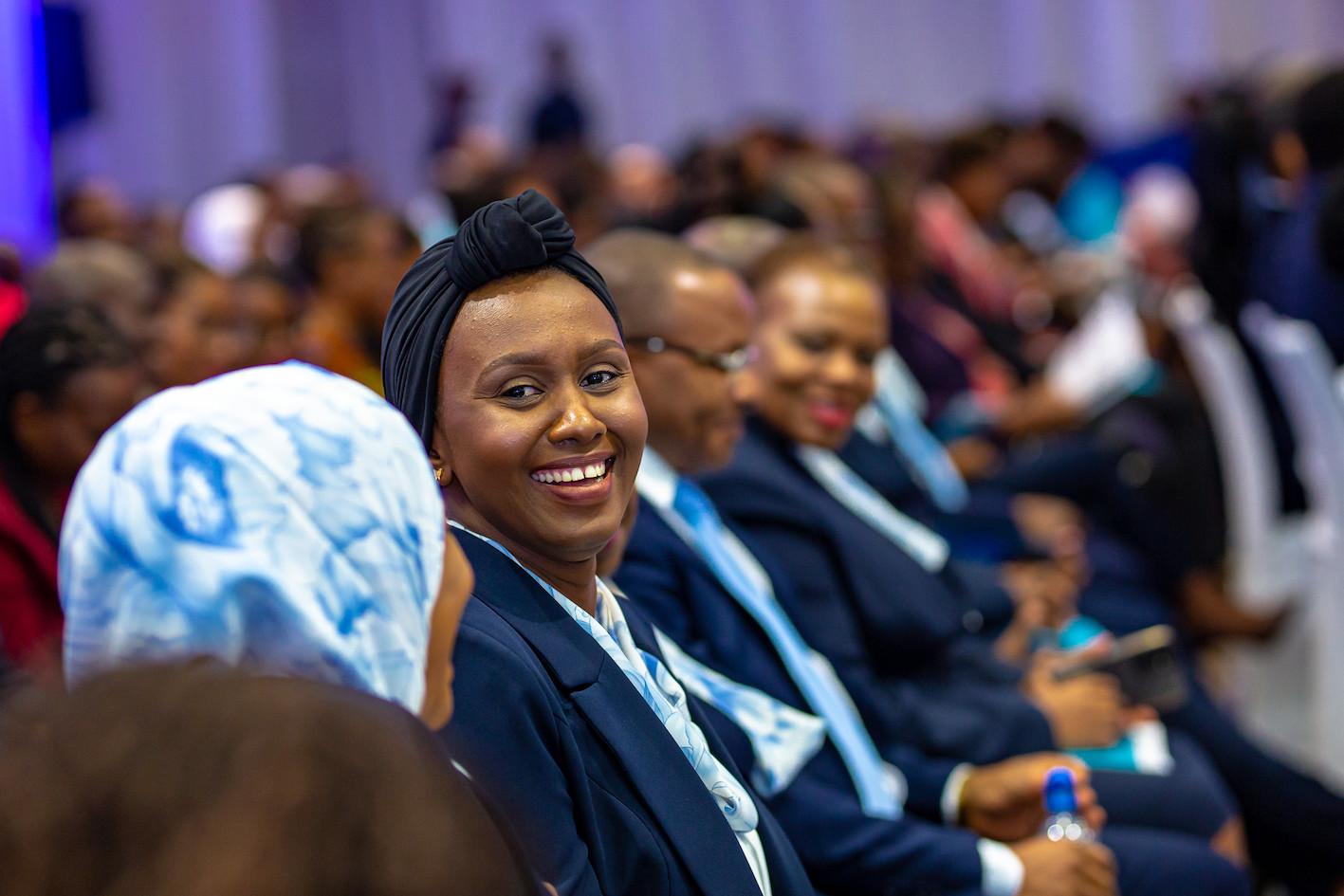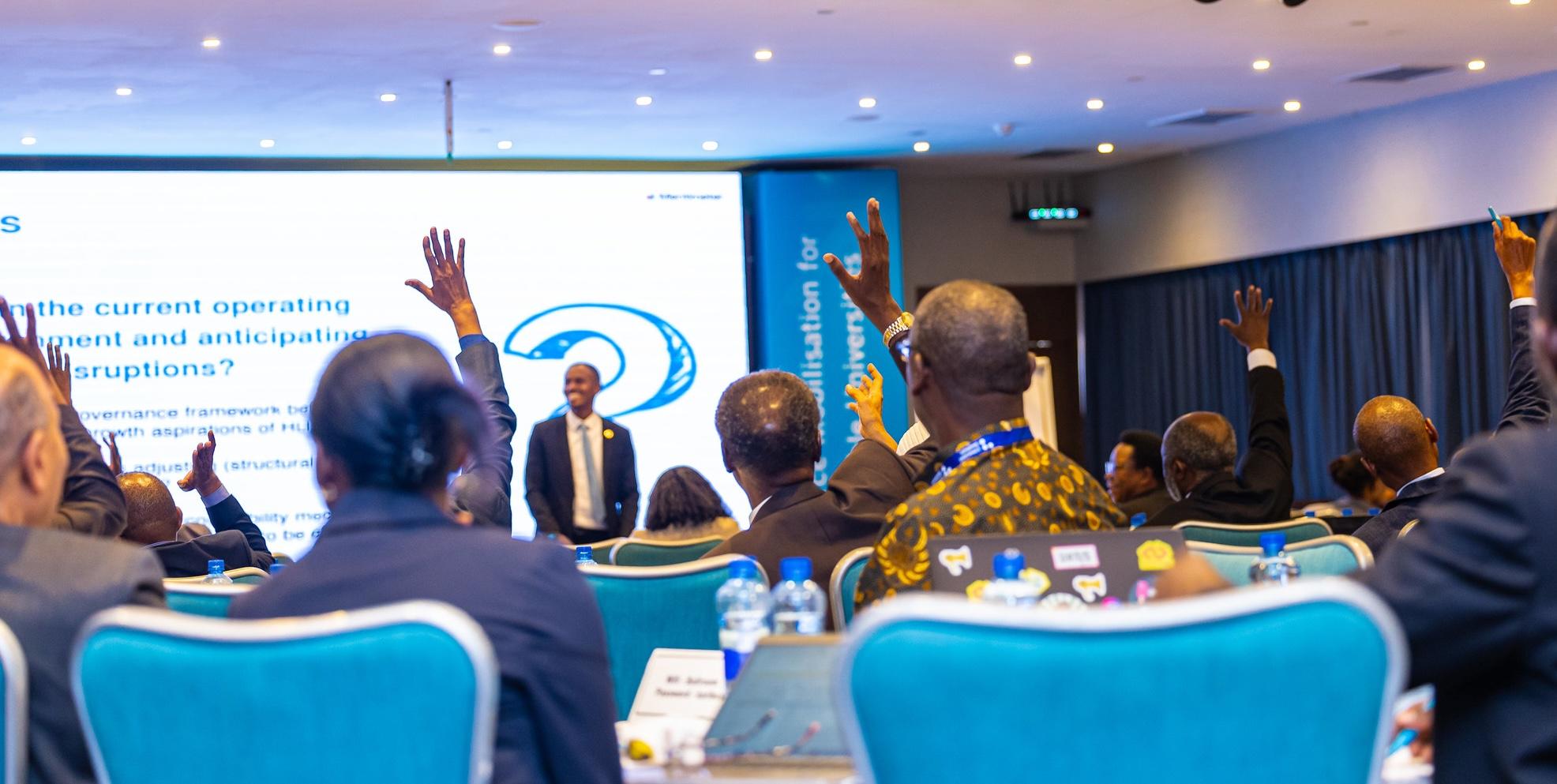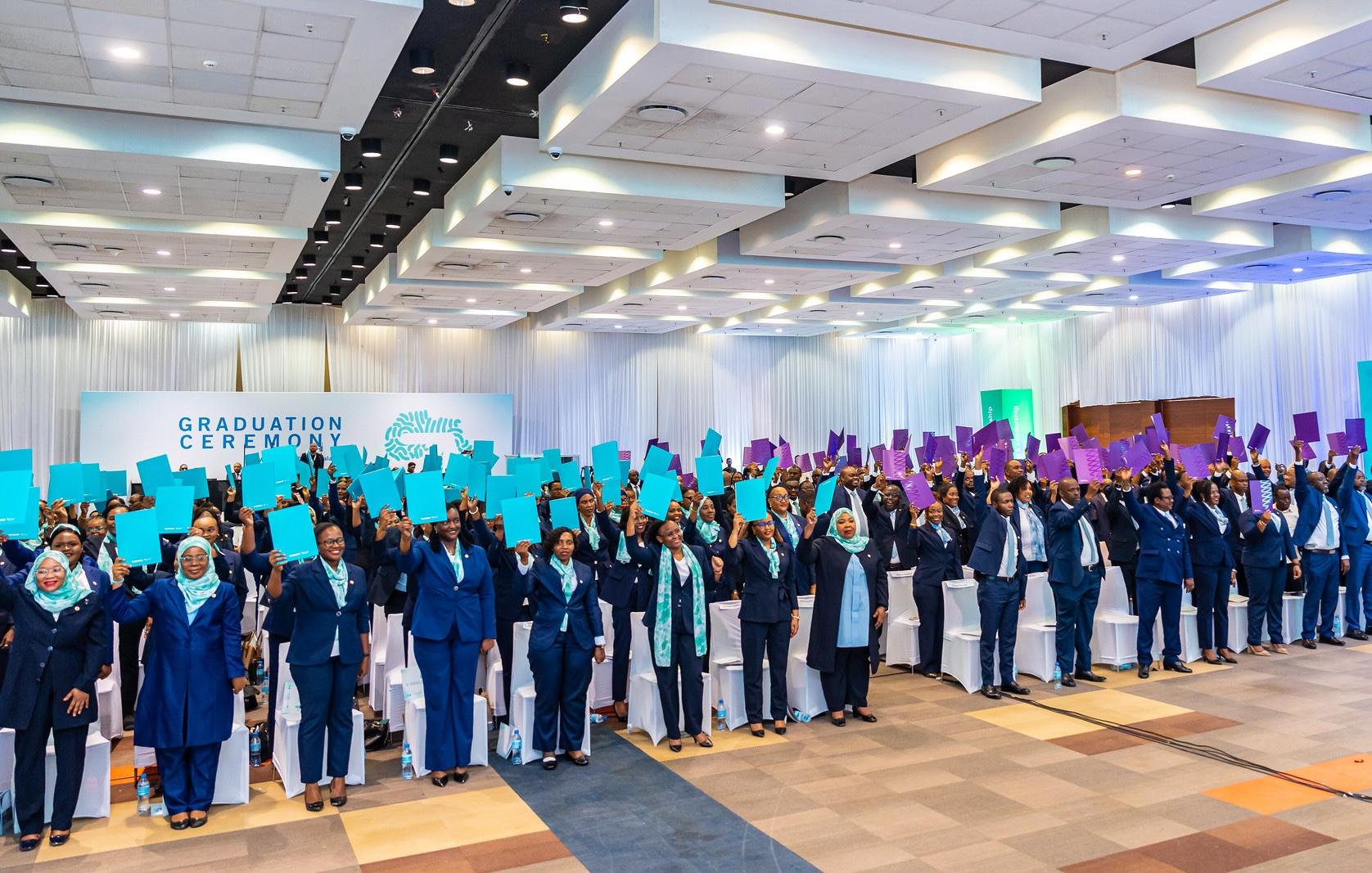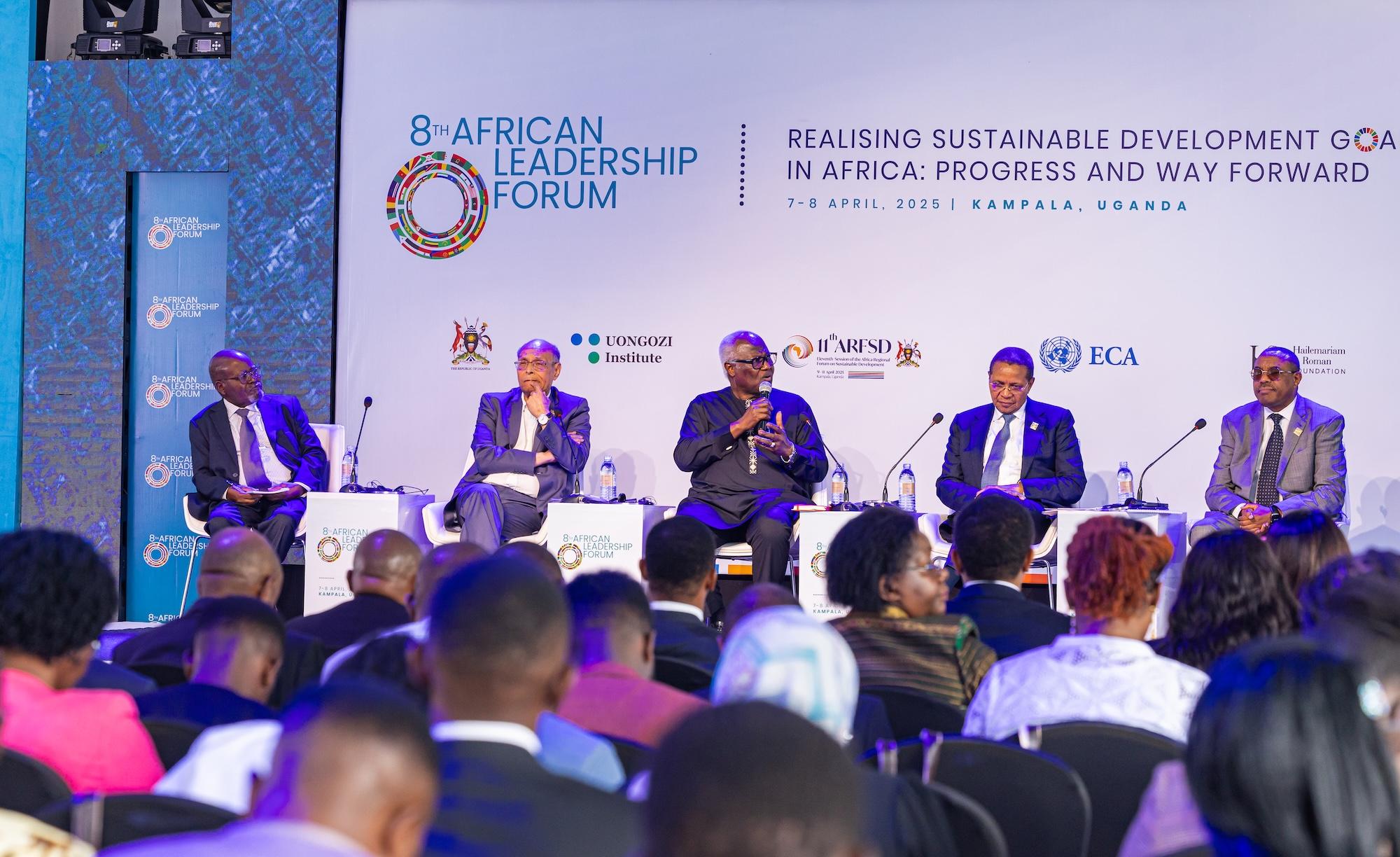A growing body of literature and research highlights the unique contributions women bring to leadership spaces, including empathy, communication skills, teamwork and transformational leadership, conflict management skills, inspirational skills and mentorship. A UN Women study uncovers positive trends in how women leaders in the Global North and Global South approached COVID-19.[1] It indicates that women leaders were particularly adept at crisis management and communication, striking the right balance between empathy and science, swift yet collaborative decision-making, and helping people make sense of the pandemic.
In Africa, the progress towards gender parity in both work and society is encouraging, yet uneven. Several women have risen to top leadership positions, assuming roles as presidents, vice presidents, and prime ministers, either through elections, constitutional succession, or interim appointments. Tanzania’s first female president, H.E. Dr. Samia Suluhu Hassan, was sworn in March 2021, while Namibia’s first female president, H.E. Netumbo Nandi-Ndaitwah, in March 2025. Other countries that had female presidents include Liberia, Ethiopia, Mauritius, and Malawi. In terms of parliamentary leadership, women hold about one-quarter of the seats across the continent, with Rwanda notably at the forefront with over 60% female representation in its national assembly.[2] In the corporate landscape, women hold 21% of board seats, 8% of board chair positions, and 9% of chief executive officer positions across the entire region.[3]
Considering this context, we convened the 5th Women’s Leadership Forum on 6 October 2025, in Dar es Salaam, Tanzania. The forum, themed “The contribution of women to leadership in Africa”, was officiated by Dr. John Jingu, Permanent Secretary for the Ministry of Community Development, Gender, Women, and Special Groups (Tanzania). The event was organised as part of our Women’s Leadership Programme (WLP), dedicated to helping women advance into leadership roles. It was drawn upon from our research study on the contribution of women to leadership in Tanzania. It featured an opening session followed by two thematic sessions: (i) the transformative power of women in leadership roles, and (ii) advancing women into leadership roles: Results through policy and systems. The keynote address was delivered by Dr. Linda Ncube-Nkomo, Chief Executive Officer of the Nelson Mandela Children’s Fund (South Africa). Delegates of the forum included leaders in government, business, academia, and civil society from across the world, as well as 100 women leaders selected to join cohorts 7 and 8 of the WLP.
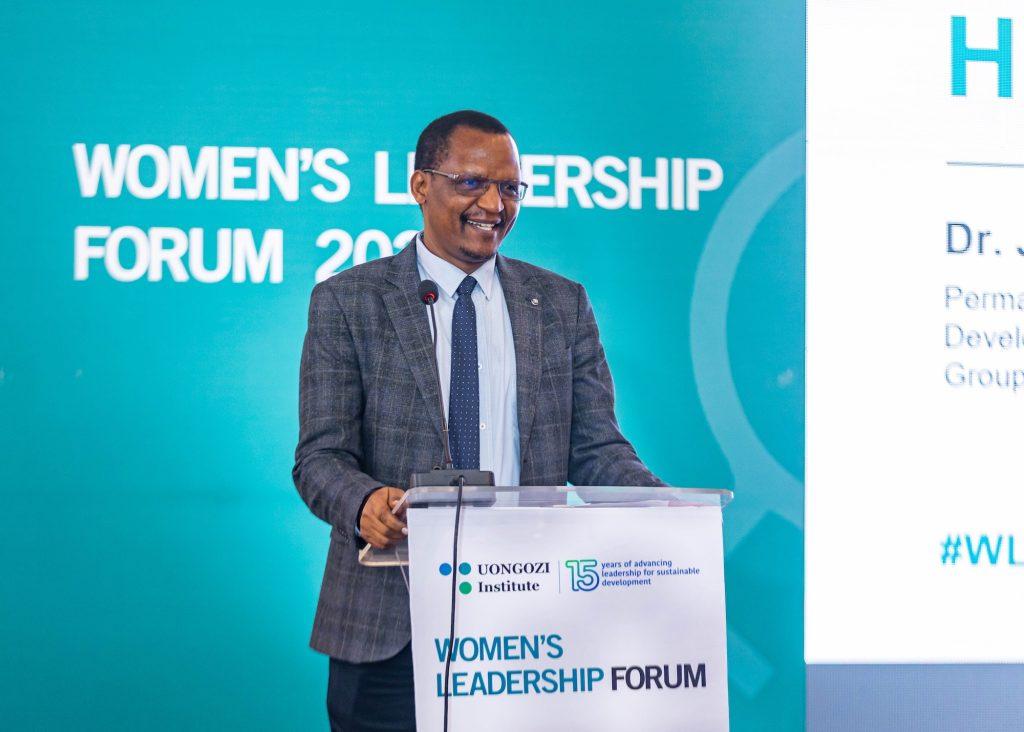
Permanent Secretary Jingu began his remarks by noting that despite policies supporting gender equality as well as regional and global commitments such as Agenda 2063 and Sustainable Development Goals, women continue to be under-represented in leadership throughout Africa. For instance in Tanzania, women account for almost half of the workforce (48.8%). However, only 27.9% senior and middle management positions are held by women in Mainland Tanzania, and 24.5% in Zanzibar. He said achieving gender balance in leadership requires targeted strategies to address systemic barriers and collaborative efforts between multiple stakeholders. Later in the discussion, speakers including Amb. Begum Taj, Vice Chairperson of UONGOZI Institute’s Board of Directors, agreed with Permanent Secretary that closing the gender gap in leadership requires all stakeholders. “Beyond institutional stakeholders, we need to involve both women and men to challenge the status quo and inspire lasting change,” she said.
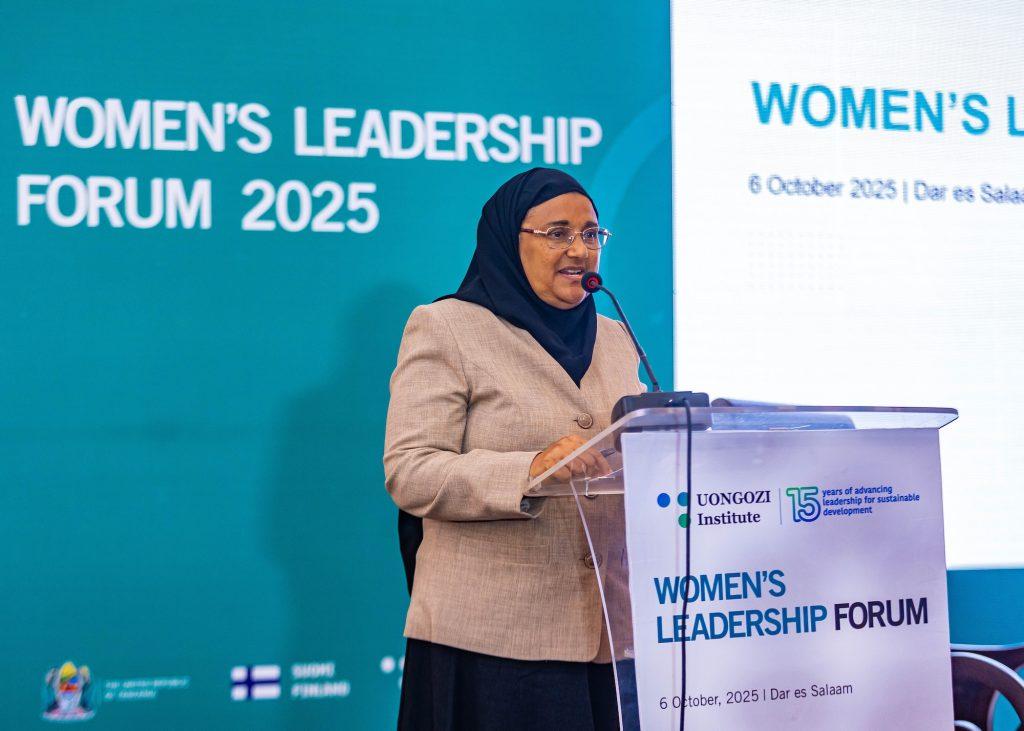
Proceeding with his speech, Dr. Jingu underscored that leadership is not about a title; rather, it is about action, influence and impact. He challenged the delegates, especially those who have recently been enrolled in the WLP, to connect intentionally, claim their space, and commit to one action:
“Find someone whose journey inspires you and create a connection. Find someone who seems to need a word of encouragement and offer it. Remember, your network is your net worth. Claim your space by speaking up and sharing your bold ideas and unique perspective. Commit to one barrier to break, or one bridge to help those behind you.”
The importance of self-leadership was also underscored by Amb. Theresa Zitting, Ambassador of Finland in Tanzania:
“ [As women] when we step into leadership roles, we may need to compete with ourselves. That is to strive for self-improvement, including nurturing our self-awareness, creativity, and perseverance – or as we say it in Finnish, sisu.”
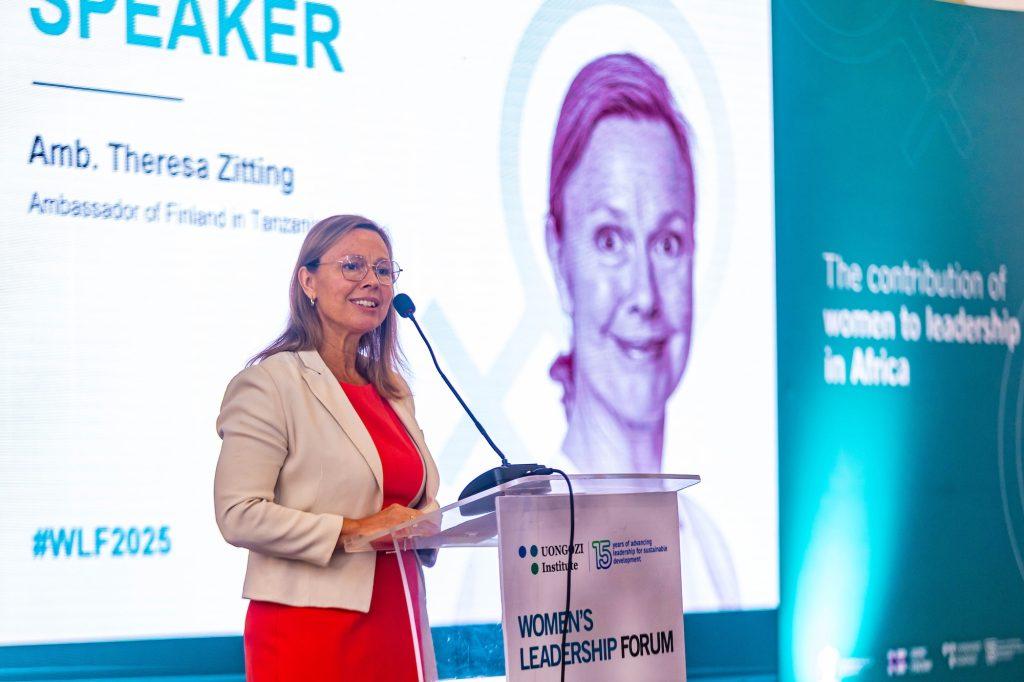
In her keynote address, Dr. Ncube-Nkomo spoke about the intersection between self-care and leadership:
“It would be remiss of me if to not talk about the world in which we are now leading as women both in Africa and abroad. We have moved from leading in a world that was volatile, uncertain, complex, and ambiguous to a world where people are brittle, where people are anxious all the time, where the decision making is no longer linear, and who can make sense of the world today? It is incomprehensible. And what that is going to require of us as leaders is to take care of ourselves. We cannot afford to be pouring from empty cups.”
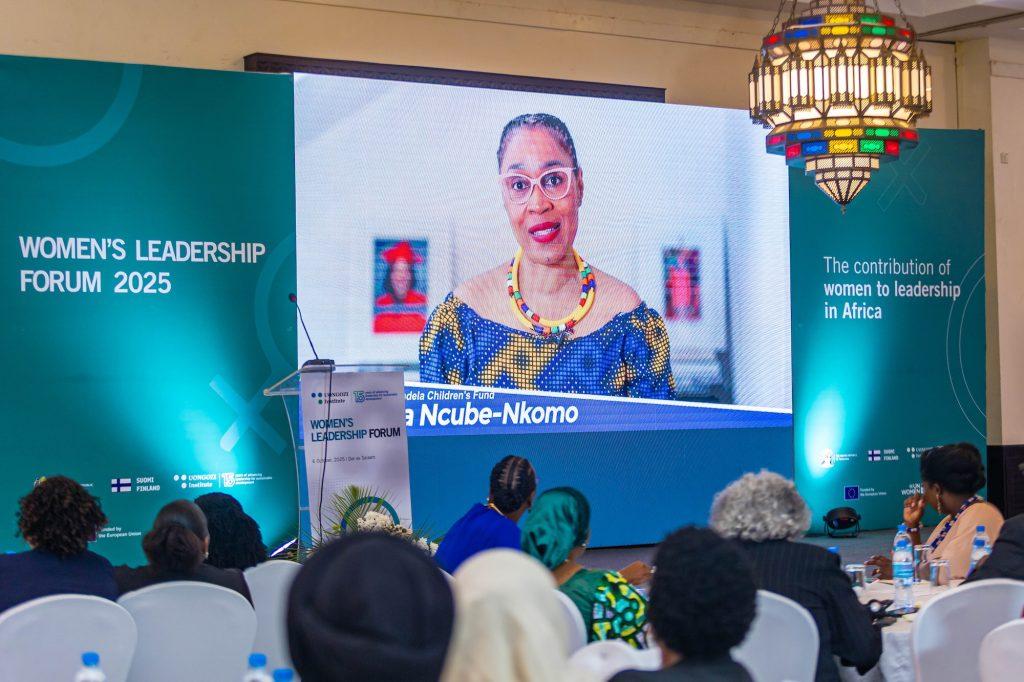
To learn more about the forum, visit this page.
[1] UN Women. (2021). Effective, decisive, and inclusive: women’s leadership in COVID-19 response and recovery.https://www.unwomen.org/en/digital-library/publications/2021/10/effective-decisive-and-inclusive-womens-leadership-in-covid-19-response-and-recovery
[2] International Institute for Democracy and Electoral Assistance. (2024). Women’s political participation: Africa barometer 2024. https://www.idea.int/sites/default/files/2024-07/womens-political-participation-africa-barometer-2024.pdf
[3] Sustainable Stock Exchanges & International Finance Corporation. (2023). Gender equality in corporate leadership Africa. https://sseinitiative.org/sites/sseinitiative/files/publications-files/2023-sse-ifc-gender-equality-africa.pdf
